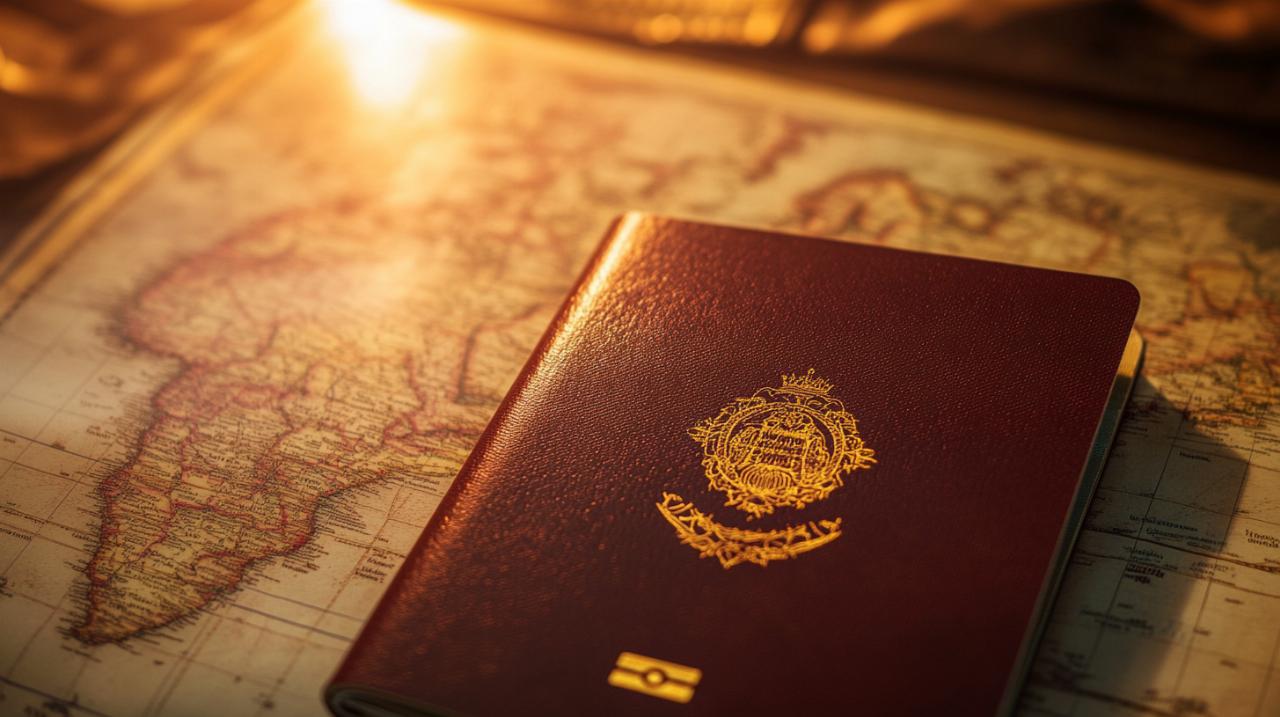Embarking on the journey to purchase a caravan tailored for the stunning landscapes and unique demands of Lake District caravan parks requires careful planning and informed decision-making. With a vast array of models, configurations, and pricing structures available, understanding the nuances between different types of holiday homes, touring caravans, and static options can be the difference between a fulfilling investment and a costly mistake. This comprehensive guide draws on decades of dealer expertise and industry insights to navigate the complexities of caravan ownership, from selecting the right model to securing favourable finance terms and ensuring your new purchase meets the specific requirements of camping in one of Britain's most beloved regions.
Understanding caravan models: finding your ideal match
When exploring the world of caravans, the first crucial decision revolves around whether a touring caravan or a static model best suits your needs. Touring caravans offer unparalleled flexibility, allowing owners to hitch up and explore different holiday parks and campsites across the Lake District and beyond. These mobile holiday homes come in a range of sizes and layouts, from compact single axle models ideal for nimble manoeuvring and smaller towing vehicles, to more substantial twin axle designs that provide enhanced stability and grip on the road, particularly beneficial when navigating the winding routes typical of Cumbria. However, twin axle caravans demand larger towing vehicles with greater capacity, a consideration that must align with your existing vehicle or willingness to invest in a suitable car. On the other hand, static caravans and luxury lodges represent a more permanent investment, often sited at a single park such as North Lakes Country Park in Silloth, where owners benefit from facilities including fibre optic broadband, generous parking, and a 64-amp electric supply. Static models typically offer more spacious living areas and a wider range of modern conveniences, making them an attractive option for those seeking a fixed retreat rather than the freedom of the open road.
Comparing touring caravans versus static models for lake district sites
The choice between touring and static caravans hinges on lifestyle preferences and how you intend to use your holiday home. Touring caravans are perfect for adventurers who relish the spontaneity of discovering new sites, whether that means a weekend at a quiet campsite near Kendal or a fortnight exploring the coastal charm of Silloth. These models are designed with portability in mind, and their lighter construction often translates to better fuel consumption and easier storage when not in use. Some enthusiasts even opt for folding caravans or trailer tents, which are lighter still and more manageable for those with smaller vehicles, though they do sacrifice some storage space and amenities. In contrast, static caravans and luxury lodges offer a more residential feel, with features such as double glazing, underfloor heating, and fixed beds that rival the comfort of a traditional home. Parks like North Lakes provide an idyllic setting with a 22-acre lake and bespoke decking options, creating a permanent base where families can return year after year. The trade-off is a lack of mobility, as these units are designed to remain in situ, and owners must factor in annual site fees, which can range significantly depending on the park and the level of facilities provided.
Family-friendly layouts versus couples' retreats: which design suits you?
Caravan layout is another critical consideration, as the interior configuration must accommodate the number of occupants and their specific needs. Family-friendly models typically feature multiple berths, with options for bunk beds, twin singles, or convertible dinette areas that transform into sleeping quarters. These layouts prioritise practicality, with ample storage for luggage, outdoor gear, and the inevitable clutter that accompanies travelling with children. Fixed beds are increasingly popular in larger models, eliminating the need to rearrange furniture each night and providing a more comfortable sleeping experience. For couples seeking a romantic retreat, a more compact design with a permanent double bed and a well-appointed bathroom may be preferable, sacrificing the extra berths in favour of a more luxurious feel and easier towing. When evaluating layouts, consider whether an awning might be used to provide additional space, as this can effectively increase the usable area and accommodate extra guests without necessitating a larger caravan. The interior design should also reflect how you plan to use the caravan, with some owners prioritising a spacious lounge and entertainment area, while others value a larger kitchen or en-suite facilities.
Navigating caravan price points and payment options
Understanding the financial commitment involved in purchasing a caravan is essential for making a sound investment. Prices for new caravans can vary dramatically, with entry-level touring models starting at approximately fifteen thousand pounds, while higher-end designs equipped with the latest technology and premium finishes can exceed thirty-five thousand pounds. Static caravans and luxury lodges represent a more substantial outlay, particularly for larger twin-unit lodges that offer expansive living spaces and resort-style amenities. Beyond the initial purchase price, prospective buyers must budget for ongoing costs including insurance, annual servicing, and site fees, which can add thousands of pounds to the total cost of ownership each year. Servicing alone typically ranges from one hundred and fifty to two hundred and fifty pounds annually, ensuring that all systems remain in good working order and that the caravan complies with safety standards. Site fees for holiday parks vary depending on location and facilities, with nightly rates for touring pitches often falling between fifteen and twenty-five pounds, while annual fees for static caravan sites can be considerably higher.
Budgeting for your purchase: new versus pre-owned caravans
For those working within a tighter budget, the second-hand market offers a wealth of opportunities to acquire a quality caravan at a fraction of the cost of a new model. Pre-owned caravans can be sourced from dealers, private sellers, Club Classifieds, or at auction, each avenue presenting its own advantages and potential pitfalls. When purchasing a used caravan, it is imperative to conduct thorough checks to ensure the unit has not been stolen and is free from outstanding finance. Examining the area around the hitch and wheels for signs of damage or tampering is a sensible precaution, as is requesting receipts, registration documents, and identification from the seller. A CRiS check, which verifies the caravan's unique identification number against a national database, is strongly recommended to confirm the legitimacy of the purchase. Without adequate identification, organisations such as the Caravan and Motorhome Club may not provide cover, leaving owners vulnerable in the event of theft or damage. While a second-hand caravan can represent excellent value, buyers should be prepared to invest in any necessary repairs or upgrades to bring the unit up to their desired standard.
Flexible Payment Plans and Finance Schemes from Dealers
Many dealers, including established names like Kendal Caravans and Haven, offer flexible payment plans and finance schemes designed to make caravan ownership more accessible. These arrangements typically require a deposit, often around ten per cent of the total purchase price, with the balance spread over a fixed term at a competitive interest rate. For example, Haven advertises a fixed repayment rate of 5.71 per cent with an APR of 9.6 per cent, allowing buyers to spread the cost over several years. Such schemes can ease the initial financial burden and enable families to invest in a higher-specification model than might otherwise be affordable. Some dealers also offer letting services, such as Haven's Let2offset programme, which allows eligible owners to generate income by renting out their static caravan when not in use, with the revenue helping to offset site fees. This arrangement is available at many Haven parks, though not all locations participate, so it is important to confirm eligibility before committing. When evaluating finance options, it is wise to compare rates from multiple providers, including high street banks and specialist caravan finance companies, to ensure you secure the most favourable terms.
Essential technical considerations before your purchase
 Before finalising your choice of caravan, it is vital to understand the technical specifications that will determine whether the unit is compatible with your towing vehicle and suitable for your intended use. One of the most critical factors is the weight of the caravan relative to your car's towing capacity. Industry guidance recommends that the caravan's weight should not exceed 85 per cent of the car's kerb weight, a rule of thumb that helps ensure safe and stable towing, particularly for those new to caravanning. Exceeding this threshold can result in reduced control on the road, increased braking distances, and heightened risk of accidents, especially on the steep and winding routes that characterise much of the Lake District. For larger caravans with a twin axle configuration, a more powerful towing vehicle is essential, ideally with a minimum of 40 brake horsepower per tonne. Diesel engines are often preferred for towing due to their superior low-down torque, which provides the pulling power needed to navigate hills and maintain speed on motorways, while automatic transmissions are increasingly popular for the smoother driving experience they offer.
Before finalising your choice of caravan, it is vital to understand the technical specifications that will determine whether the unit is compatible with your towing vehicle and suitable for your intended use. One of the most critical factors is the weight of the caravan relative to your car's towing capacity. Industry guidance recommends that the caravan's weight should not exceed 85 per cent of the car's kerb weight, a rule of thumb that helps ensure safe and stable towing, particularly for those new to caravanning. Exceeding this threshold can result in reduced control on the road, increased braking distances, and heightened risk of accidents, especially on the steep and winding routes that characterise much of the Lake District. For larger caravans with a twin axle configuration, a more powerful towing vehicle is essential, ideally with a minimum of 40 brake horsepower per tonne. Diesel engines are often preferred for towing due to their superior low-down torque, which provides the pulling power needed to navigate hills and maintain speed on motorways, while automatic transmissions are increasingly popular for the smoother driving experience they offer.
Caravan Weight and Towing Requirements for Safe Camping
Understanding the interplay between caravan weight and towing capacity is not just a matter of safety but also a legal requirement. Caravans must not exceed a maximum weight of 3,500 kilograms when fully laden, and the overall width must not surpass 2.55 metres, with length restrictions of up to seven metres excluding the A-frame for trailers within this weight category. These dimensions are designed to ensure that caravans can navigate standard roads and parking facilities without difficulty. Your driving licence requirements will also vary depending on when you passed your test, with older licences often permitting a higher combined vehicle and trailer weight than those issued more recently. It is essential to verify your specific entitlements before purchasing a caravan, as towing a unit that exceeds your licence category can result in penalties and invalidate your insurance. Additionally, ensuring your towing vehicle is equipped with the correct hitch and that the caravan is fitted with appropriate safety equipment, such as a nose weight gauge and spirit levels for proper levelling on site, will contribute to a safer and more enjoyable camping experience.
Key specifications: berths, storage, and seasonal ratings
Beyond weight and towing considerations, the practical specifications of a caravan will significantly impact its suitability for your needs. The number of berths determines sleeping capacity, but it is important to consider the quality and configuration of these sleeping arrangements rather than simply counting the maximum occupancy. Fixed beds offer greater comfort and convenience, while convertible dinette or lounge areas may be perfectly adequate for occasional guests or children. Storage is another critical factor, as caravans vary widely in the amount of space available for luggage, outdoor equipment, and personal belongings. Some models feature a dedicated garage area, which can be invaluable for storing bicycles, fishing gear, or wet weather clothing, while others rely on overhead lockers and under-seat compartments. Security is also a paramount concern, particularly when the caravan is left unattended on a storage site or holiday park. Investing in hitch locks, wheel clamps, and selecting a storage facility with a CaSSOA Gold, Silver, or Bronze security rating can provide peace of mind and may also reduce insurance premiums. Seasonal ratings indicate the suitability of a caravan for year-round use, with higher-rated models featuring enhanced insulation, double glazing, and underfloor heating that make them comfortable even in the colder months, a particularly relevant consideration for those planning to use their caravan in the Lake District outside the summer season.
Making the Purchase: Working with Caravan Dealers
Once you have identified the type of caravan that meets your requirements, the next step is to engage with reputable dealers who can guide you through the purchase process and provide ongoing support. Established dealerships such as Kendal Caravans, with over 35 years of experience, offer a structured approach to buying, encompassing everything from initial consultations to finalising your order and arranging delivery. Their four-step process begins with helping you find your ideal caravan or motorhome, followed by selecting a suitable holiday park, finalising your choice of model, and completing the transaction. With sales centres in Kendal and Blackpool, they are well-positioned to serve buyers across the North West and beyond, operating extended hours including Sundays and bank holidays to accommodate busy schedules. Visiting a dealership in person allows you to inspect models firsthand, assess build quality, and ask detailed questions about specifications, warranties, and after-sales service. Many dealers also offer part-exchange schemes, enabling you to offset the cost of your new purchase by trading in an existing caravan or vehicle.
What to Look for When Visiting Dealerships Near the Lake District
When visiting dealerships in the Lake District area, take the opportunity to view a wide range of models and compare features across different price points. Pay close attention to the quality of construction, noting details such as the thickness of wall panels, the robustness of fittings, and the standard of finish in the interior. A well-built caravan will not only provide greater comfort and durability but will also retain its value more effectively over time. Enquire about the manufacturer's warranty and whether extended cover is available, as this can provide valuable protection against unexpected repair costs. Dealers should be able to provide comprehensive information about each model's weight, towing requirements, and seasonal rating, as well as guidance on compatible towing vehicles and recommended accessories. It is also worth asking about servicing arrangements and whether the dealership offers a mobile service or requires caravans to be brought to their premises. Establishing a good relationship with a knowledgeable dealer can be invaluable, particularly for first-time buyers who may need advice on everything from hitch installation to caravan club memberships and breakdown cover options.
Securing the Best Deal: Negotiation Tips and After-Sales Support
Negotiating the best possible deal on your caravan purchase requires a combination of research, patience, and a willingness to walk away if the terms are not favourable. Before entering negotiations, arm yourself with information about current market prices, both for new and second-hand models, and be clear about your budget and the features that are non-negotiable. Dealers may be willing to offer discounts, particularly towards the end of the season or if they have surplus stock, and bundling accessories such as hitch locks, wheel clamps, or a European driving kit into the purchase price can represent significant savings. Do not overlook the importance of after-sales support, as a dealer who provides comprehensive servicing, warranties, and assistance with insurance and breakdown cover can save you time and money in the long run. Some dealerships also offer letting services, allowing owners to generate income from their static caravan when not in use, with the revenue helping to offset site fees and other costs. This can be an attractive proposition, particularly at parks like those operated by Haven, where fixed and flexible letting options are available at selected locations. Finally, ensure that all terms are clearly documented in writing, including the final price, any trade-in valuation, the scope of warranties, and the details of any finance agreement, so that there is no ambiguity or scope for misunderstanding once the sale is complete.






